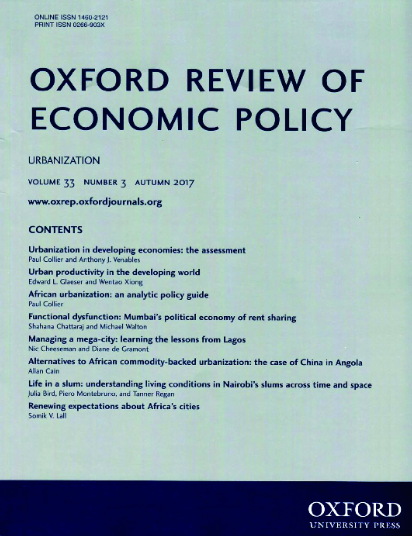布雷顿森林体系建立 80 年后的多边经济体系
IF 1.8
2区 经济学
Q2 ECONOMICS
引用次数: 0
摘要
从 1944 年布雷顿森林会议发展起来的全球经济机构旨在创造一个有利于复苏、发展、持续繁荣、社会稳定和民主的合作政策环境。20世纪30年代,伴随着世界经济大萧条和第二次世界大战的来临,宏观经济和贸易政策协调失败,这一点在设计者的脑海中尤为突出。到 20 世纪 90 年代初,布雷顿森林体系所依据的 "嵌入式自由主义 "假设让位于一个更加以市场为导向的体系,从而推动了几个大型新兴市场的强劲增长和一个高度全球化的时期,但同时也加剧了发达经济体的社会紧张局势。其结果是,世界地缘政治平衡发生了变化,许多较富裕的国家,特别是战后国际合作的主要发起国美国,对全球化的某些方面产生了反感。与此同时,尽管出现了需要采取联合行动的更广泛的全球共同威胁,但全球合作受到了威胁。主导现有多边机构的富裕工业国家应认识到,这些机构有助于将超级大国的竞争转化为正和结果,并能吸引基础广泛的国际支持。然而,利用这些机构需要中低收入国家以及发达经济体国内政治支持者的支持。多边主义的未来取决于如何调和这些可能相互冲突的当务之急。本文章由计算机程序翻译,如有差异,请以英文原文为准。
Economic multilateralism 80 years after Bretton Woods
The global economic institutions that grew from the Bretton Woods conference of 1944 aimed to create a cooperative policy environment conducive to recovery, development, continuing prosperity, social stability, and democracy. Prominent in the minds of the architects were the macroeconomic and trade policy coordination failures of the 1930s, which accompanied a world depression and the march towards the Second World War. The assumption of ‘embedded liberalism’ underlying Bretton Woods gave way to a much more market-oriented system by the early 1990s, fuelling strong growth in several large emerging markets and a period of hyperglobalization—but also social tensions in advanced economies. The result has been a changed geopolitical balance in the world as well as a backlash against aspects of globalization in many richer countries, notably the main sponsor of post-war international cooperation, the United States. At the same time, global cooperation is threatened despite the emergence of a broader range of shared global threats requiring joint action. The rich industrial countries that dominate the existing multilateral institutions should recognize them as being instrumental for channelling superpower competition into positive-sum outcomes that can also attract broad-based international support. However, leveraging those institutions will require buy-in from middle- and low-income countries, as well as from domestic political constituencies in advanced economies. The future of multilateralism depends on reconciling these potentially conflicting imperatives.
求助全文
通过发布文献求助,成功后即可免费获取论文全文。
去求助
来源期刊

Oxford Review of Economic Policy
ECONOMICS-
CiteScore
12.50
自引率
1.50%
发文量
41
期刊介绍:
The Oxford Review of Economic Policy is a refereed journal which is published quarterly. Each issue concentrates on a current theme in economic policy, with a balance between macro- and microeconomics, and comprises an assessment and a number of articles. It gives a valuable appraisal of economic policies worldwide. While the analysis is challenging and at the forefront of current thinking, articles are presented in non-technical language to make them readily accessible to all readers. The Oxford Review is aimed at a wide audience including government, business and policy-makers, as well as academics and students. It is required reading for those who need to know where research is leading.
 求助内容:
求助内容: 应助结果提醒方式:
应助结果提醒方式:


